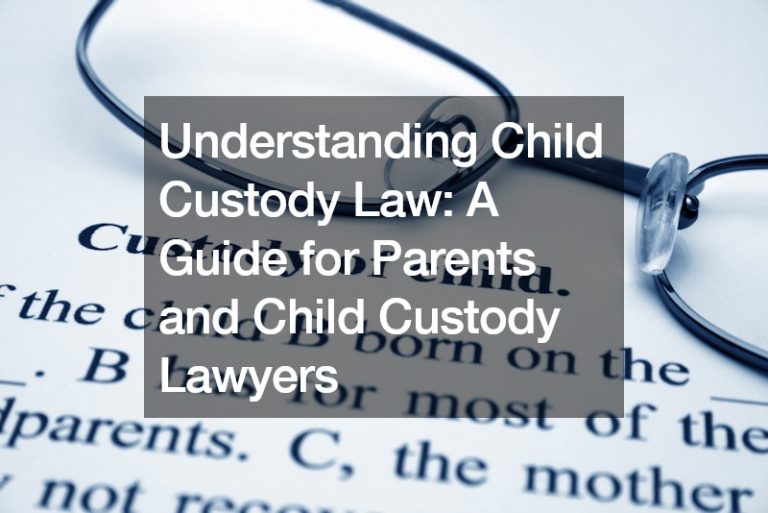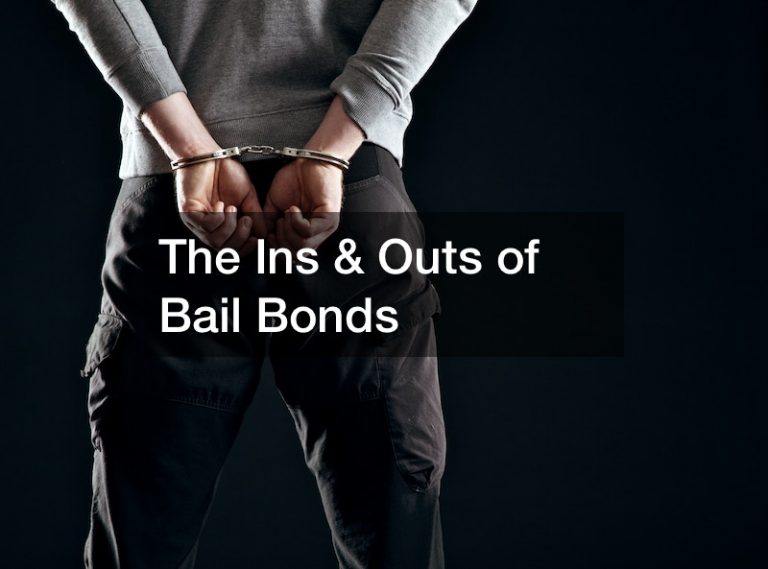Life of a Bounty Hunter: Chasing Bail Skips

If someone you love has been arrested, you might have questions about how bail bonds work. Here are answers to some of the most common questions regarding bail and bonds.
Bail decision is made at what stage?
Judges usually set bail during the defendant’s first appearance. Accused individuals have the right to representation during these hearings. For some more common offenses, such as driving under the influence, judges often release alleged offenders on personal recognizance bonds that don’t require the defendant to post collateral.
Can I get bail during trial?
Judges commonly set bond during a defendant’s first appearance. As long as the defendant abides by the terms and conditions of release set by the judge and is able to pay the required bond, they should be able to remain unincarcerated during trial.
What do people mean by bail extended meaning?
While there may be some colloquial meaning attached to this phrase, it has no legal relevance in the United States.
Can I get bail in non bailable offence?
What qualifies as a non-bailable offense varies by jurisdiction. Speak with an attorney licensed to practice law in the jurisdiction for which your loved one is being denied bail to obtain accurate information regarding the situation.
A bail bondsman is a person who assists in an incarcerated person’s release from jail while waiting for their court date. A bounty hunter is the one who will go after the person if they don’t show up for their court date as agreed.
When a person goes to jail, the statutes in that state determine whether the person is eligible to be released. Bail hearing cases are where bail arguments are presented before the court. The court then decides to grant or deny the release and for how much money.
If a person is granted bail, they are let out on bail cash or bond. Bail cash means the person or the person’s representative provided payment as ordered by the court. Bail bond means the person agreed with a bail bondsman to post their bail to the court on their behalf.
If a person uses a bail bond company, the bail bond agent agrees to pay the total penalty amount if they do not show up for their next court date. Because of this, bail bonding companies are highly motivated to have released individuals show up as ordered by the court.
Part of a bail bonding agreement is to avoid getting into trouble while out on bail. If a person finds themselves arrested while out on bail, that individual must forfeit all their bail bond fees and will most likely face stiffer penalties from the justice system. That person may not be eligible to be released on bail in the future, although exceptions exist.

The life of a bounty hunter is dissimilar to what you may have seen on TV and in movies. In some ways, it is more boring because it involves preparing and filing a lot of arrest warrant paperwork with courts and jails. In other ways, it is less adventurous than fictional depictions because it often requires a lot of detective work and very few car chases or home raids to find defendants.
Understanding bail and bounty hunting is not just important for those who might run afoul of the law. Bail bonding services are essential to a fair justice system that requires bail for most defendants to be released while awaiting trial. Without bail bonding, criminal defendants could spend months in jail before ever being convicted of anything. As a result, many innocent people are forced to take plea deals just to get released from jail instead of being held indefinitely for a trial.
Moreover, bail bonding and bounty hunting can be stable career choices. The life of a bounty hunter might not be glamorous, but there will be a need for bounty hunters as long as the current cash bail system exists.
Here are seven FAQs about the life of a bounty hunter:
What is Bail?
To understand the life of a bounty hunter, you must understand bail. After an arrest, a criminal defendant is booked into jail and held for an arraignment and bail hearing. This usually occurs within a few days after the arrest.
At the arraignment, the defendant is notified of the charges and a judge determines the bail required for release. The Eighth Amendment to the U.S. Constitution prohibits excessive bail and cruel and unusual punishments. As a result, bail is granted unless the defendant poses a danger to others or the defendant’s release constitutes a flight risk.
The amount of bail is set by a judge, but the judge is often constrained by state law. For example, state law might set out a range of bail amounts for various levels of offenses and the judge might be able to select a number within the range but be prohibited from setting a number outside the range.
The defendant is represented by a criminal defense lawyer at the arraignment and bail hearing. If there are questions about whether bail should be granted or how much bail is required, the lawyer can argue on behalf of the defendant to try to obtain reasonable terms for the defendant’s release.
Who Pays the Bail?
If the defendant is willing to pay cash for the bail, the defendant can post bail directly. For example, if bail is set at $500, a criminal defendant could pay cash to the court clerk to secure the defendant’s release. Depending on the court, the defendant may also have the option to post cash bail using a credit card. If the court does not accept credit cards, the defendant might need to borrow cash from loan programs to pay cash bail.

If the defendant cannot or is unwilling to pay cash bail, the defendant can call a bail bonding company to post a bond to secure the defendant’s release. A bail bond is a promise by the person posting the bond to make all court appearances and comply with the terms of release. In this sense, a bail bond is an agreement between three parties:
- Criminal defendant: The criminal defendant agrees to the terms of release and any additional terms imposed by the bail bonding company. The criminal defendant pays a fee to the bail bonding company for it to post the bail bond.
- Court: The court accepts the bail bond in lieu of cash bail and releases the criminal defendant.
- Bail bonding company: The bail bonding company gives the court its promise to make sure the criminal defendant appears and complies with the terms of release. If the criminal defendant fails to appear or violates the terms of the release, the bail bonding company must forfeit the entire amount of the bail to the court or deliver the criminal defendant to jail.
What Does a Bounty Hunter Do?
This last sentence is the reason bounty hunters exist. The life of a bounty hunter exists to protect a bail bonding company’s interests when a defendant fails to appear in court or violates the terms of release. Specifically, to avoid forfeiting the entire bail amount to the court, the bail bonding company employs a bounty hunter to deliver the criminal defendant to jail.
Procedurally, when a defendant fails to appear in court as scheduled, the judge can issue a bench warrant and revoke the bail. This places the bail bonding company on notice that it will have to forfeit the bail if the defendant is not delivered to jail.
In most cases, the bail bondsman is able to track down the defendant without using a bounty hunter. For example, if a criminal defendant misses court because the defendant had to work or simply forgot about the court date, the bail bondsman can often track down the defendant by calling the defendant, a friend or relative of the defendant, or the defendant’s lawyer. In this situation, the bail bondsman might be able to work with the criminal defendant and the defendant’s lawyer to resolve the defendant’s failure to appear.

There are times that the bail bondsman cannot find the defendant. Sometimes, this occurs when the defendant skips bail. Other times, the defendant has an excuse for disappearing, such as going into the hospital. The life of a bounty hunter is to track down the defendant and deliver the defendant to jail so the bail bonding company does not need to forfeit the bail.
For example, bail might be set at $2,500 for a felony arrest for DUI. The defendant may pay a fee of $250 to the bail bonding company to post bail. If the defendant fails to appear at a court hearing, the judge issues a bench warrant, and the bail bonding company is at risk of having to pay the court $2,500. To avoid this, the bail bondsman might hire a bounty hunter to track down the defendant and deliver the defendant to jail.
What Happens After Being Caught?
After a criminal defendant is caught and delivered to jail, the bail bondsman is off the hook for the initial bond. In other words, the defendant is back in jail and the bail bondsman is released from the bond, so the defendant’s appearance in court is now assured.
The bail bondsman could be done with the case at this point and leave the defendant in jail. Alternatively, a bail bonding company could pay the bail for arrest warrants and, once again, secure the defendant’s release. A bail bonding company could choose to help the defendant again for a few reasons:
- The defendant had a good reason for missing court.
- The bail bondsman has a good relationship with the defendant and trusts that the defendant can comply with the terms of release.
- The bail bonding company can earn another fee for re-bonding the defendant.
Another option for the defendant is to contact a different bail bonding company. Bail bond agents offer different terms and different levels of service, which might persuade a criminal defendant to pick a different bond agent.
Are Bail Bondsmen the Same as Bounty Hunters?
A bail bondsman can be a bounty hunter and a bounty hunter can be a bail bondsman, but this is not always the case. The requirements for becoming a bounty hunter are different from becoming a bail bonding agent. This means that a bail bondsman can become a bounty hunter, but it would require additional effort and, depending on the state, different licensing.

A bail bonding agent is analogous to an insurance agent. The bail bond is a contractual promise to pay if an event occurs. Specifically, bail is paid if a bench warrant is issued for the defendant just as an insurance company pays if a car is damaged in an accident.
A bail bonding company must have a surety company standing behind its bonds. In other words, if a bond is revoked and bail must be paid, the surety company pays the bail. This means that the bail bonding company is usually not directly responsible for paying the forfeit bail. But it also means that bail bond services that write a lot of bad bail bonds might not be able to find a surety company willing to work with it.
Because bail bonding agents primarily fulfill a financial role, the requirements to become a bail bonding agent are more geared toward proving that the applicant has an understanding of insurance and surety. Depending on the state, this might include:
- Taking the required educational courses.
- Passing an examination.
- Completing a background check.
- Obtaining a license.
By contrast, the life of a bounty hunter fulfills a role that is similar to a court marshal or law enforcement officer. The bounty hunter must know the laws for enforcing bail, from entering into a criminal defendant’s property to safely arresting the defendant.
While a bounty hunter need not have the level of legal knowledge required for lawyers or law enforcement officers, the bounty hunter must be able to deliver a criminal defendant to jail without:
- Violating the criminal defendant’s rights.
- Endangering bystanders.
- Breaking any laws.
As a result, the licensing for bounty hunters is different from the licensing for bail bond agents. Although both are usually required by states to satisfy educational, examination, and licensing requirements, the courses, tests, and license applications are different.
How do Bounty Hunters do Their Work?
The life of a bounty hunter constitutes a lot of leg work and investigating dotted with moments of excitement.
When a bail bond is written, the defendant must identify sufficient collateral to cover the bail. This is done so that if a warrant is issued and the bail is forfeited, the bail bonding company can try to use the defendant’s own assets to cover the bail rather than having to turn to its surety.
If the defendant has insufficient collateral, the defendant is usually required to designate a co-signer. This co-signer has two purposes. First, the co-signer also identifies collateral that can be attached or liquidated if the bail is forfeited. Second, the co-signer acts as a point of contact if a bench warrant is issued.
If a defendant cannot be reached after a bench warrant is issued, the bounty hunter usually begins with the co-signer. For good or bad, the life of a bounty hunter can involve some aggressive techniques to pressure the co-signer into helping to find the defendant. This can include lying to the co-signer, threatening the co-signer with criminal prosecution for helping the defendant, and strong-arming the co-signer with loss of the collateral.

If the co-signer is unable to provide any assistance in finding the defendant, the life of a bounty hunter becomes that of a detective. The bounty hunter tracks down the defendant’s friends and relatives, trying to find a lead.
When the bounty hunter finally finds the defendant, the bounty hunter has some authority to enter private property and use physical force to take the defendant into custody. However, the life of a bounty hunter is risky because fugitives may fight hard to avoid being taken to jail.
Moreover, the bounty hunter must balance the authority to arrest the defendant against the risk of causing damage or injuries. If the defendant’s criminal lawyer sees bruises and cuts on the criminal after being taken into custody, a bounty hunter could be looking at a huge lawsuit.

How are Bounty Hunters Paid?
The life of a bounty hunter can be difficult. Bounty hunters can spend up to 100 hours per week tracking down bail skips. Bounty hunters are paid based on a percentage of the bond. In other words, in exchange for helping avoid forfeiting the bail, a bail bondsman will pay the bounty hunter a fee calculated from the bond amount.
For example, a typical bond fee is 10%. Thus, for a $10,000 bond, the criminal defendant might pay 24 hour bail bondsmen $1,000. If the criminal defendant fails to appear in court and the judge issues a bench warrant, the bail bondsman faces forfeiting $10,000.

As mentioned above, the bail bondsman will often start by trying to track down the defendant. This makes sense because this is essentially free. If the bail bond agent tracks down the defendant, the bonding company does not have to forfeit the $10,000 and still makes $1,000 from writing the bond.
However, if the bail bond company cannot find the defendant, the bail bond company is better off paying a bounty hunter anywhere from 10% to 25% ($1,000 to $2,500) to track down the defendant than forfeiting $10,000 to the court.
This might seem like a lot of money. However, the life of a bounty hunter is both risky and difficult. If a bounty hunter spends a few days tracking down a defendant, the bounty might translate into a very low hourly rate. Moreover, bounty hunters often have to search through dangerous neighborhoods and talk to dangerous people to try to find a defendant.
Bounty hunters (or bail recovery agents) perform an essential role in the justice system. Without bail companies, many criminal defendants would be unable to afford bail and without bounty hunters, many bail companies would be unable to stay in business.






